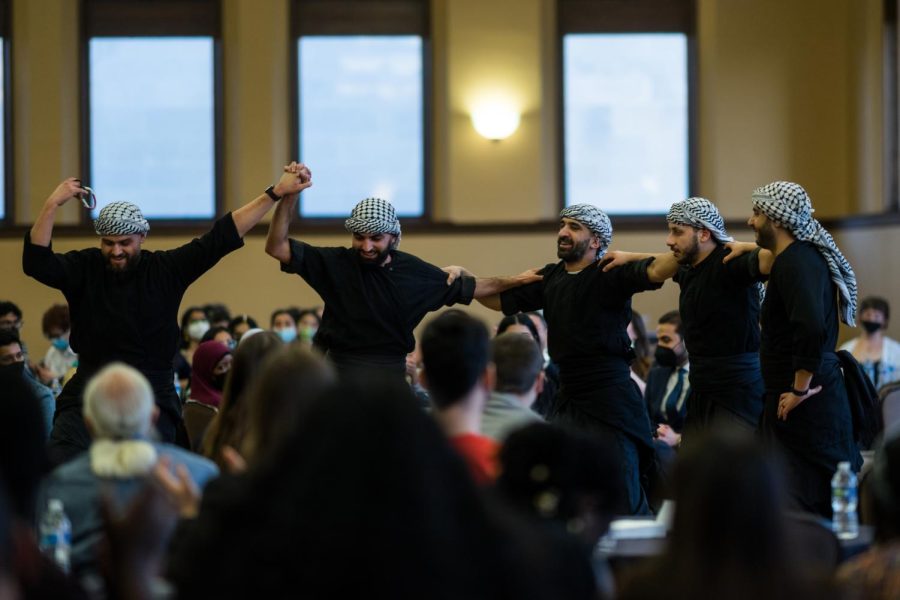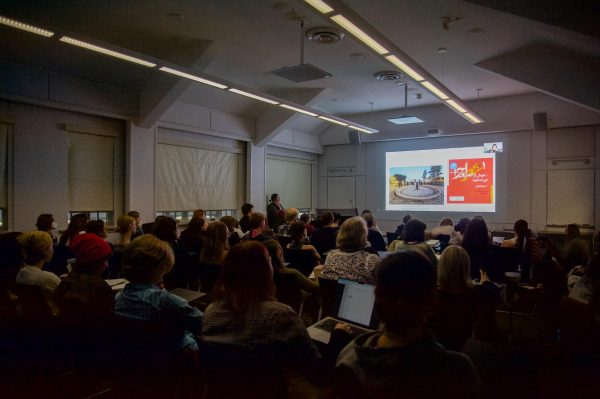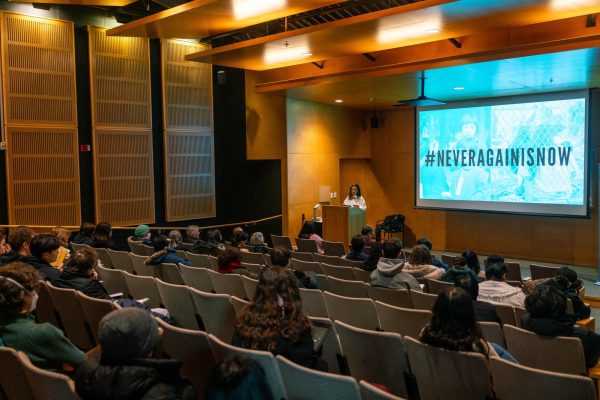Muslim Students Association’s Eid al-Fitr Banquet Felt Like Home
When I was little, I spent the first few months of the year patiently awaiting the candy-filled Islamic holiday Eid al-Fitr, a festival that crowns Eid, the monthlong fasting period. The fast purposefully tests endurance in an effort to draw attention to one’s nafs, which translates to “self” or “psyche.” Essentially, Eid is a journey to reach al-Nafs al-Muthmainnah, a cleansed bright soul with the remembrance of Allah and the eradication of less favorable qualities such as lust and greed. At the end of a month, Eid ends with a festival celebrating family, appreciation, and gratitude. This year, I shared one of Islam’s most beautiful traditions at Oberlin with the Muslim Students Assocation, a group that not only includes those who identify as Muslim, but also welcomes those who are interested in learning about and appreciating Islamic culture.
The event started with a speech from MSA’s liaison, College fourth-year Marwan Ghanem, who emphasized the importance and meaning of this day in memory of Ammar Abo El-Naga, OC ’21, who had a huge impact on the Oberlin community through frequent volunteering at Oberlin Community Services and the local retirement community, Kendal at Oberlin, but who tragically passed away in 2018. Ghanem’s speech was followed by the joyous dabke dancing, which is a traditional dance form often performed at weddings, especially in Palestine, Syria, Jordan, and Lebanon. It was impossible to stay put as we sat at our tables. I wanted to grab a white cloth and join in on the dance while dragging my friends along.
Soon after, it was time for the feast — a big part of Eid al-Fitr: the breaking of the fast. The excitement and sparkles in people’s eyes as they saw and tasted the food were worth the wait. With kofta, various kebabs, yogurt, lavash, hummus, pilaf, and falafel, it definitely was a feast. Baklava was the perfect ending to the mouthwatering journey. Once the belly dancing started, everyone’s face lit up with food-drunk smiles as they gave themselves to the melody, appreciating the traditional dancing and its beauty.
As an international student, even in a welcoming environment like Oberlin’s, a sense of cultural belonging is difficult to find. Especially after the Kosher Halal Co-op was shut down by the College, it became harder to find that place. I felt unappreciated and dismissed. I felt the need to tone down my culture. At the banquet, I felt home. On Monday, after seeing all the students and the faculty who showed up, I couldn’t hold back tears. It meant so much to me. People were curious and enthusiastic about celebrating with us. All day, I was thinking about my family back home, celebrating without me, just like they have been for the past three years since I started college. But the banquet made me realize that it is always possible to recreate home and find people who will appreciate and be willing to learn about my culture.
The smiles lingered long after the event was over. And that is the true meaning of Eid: being aware, appreciative, and grateful for what we have. It is the commemoration of love, people, family, and life.
I am incredibly grateful to MSA for organizing this lovely event. It was amazing to share this tradition with so many people wearing traditional clothing from all around the world. I wanted to cherish this moment forever. The African Students Association and South Asian Students Association, as well as people who were simply curious and respectful, joining to celebrate this tradition was a true moment of sharing joy, culture, and identities. It didn’t matter that we came from different backgrounds — we were simply a community celebrating life, love, and the self.











